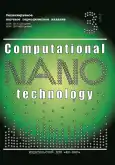Evolution of the capabilities of large language models in the legal field: Meta-analysis of four experimental studies
- Авторлар: Dushkin R.V.1, Podoprigora V.N.2, Kuzmin A.A.3, Dushkin K.R.4
-
Мекемелер:
- National Research Nuclear University “MEPhI”
- Plekhanov Russian University of Economics
- Ecosystem Digital Solutions LLC
- A-Ya expert LLC
- Шығарылым: Том 12, № 3 (2025)
- Беттер: 209-220
- Бөлім: LARGE LANGUAGE MODELS IN LEGAL PRACTICE
- URL: https://bakhtiniada.ru/2313-223X/article/view/350202
- DOI: https://doi.org/10.33693/2313-223X-2025-12-3-209-220
- EDN: https://elibrary.ru/CBJQVM
- ID: 350202
Дәйексөз келтіру
Аннотация
This paper presents a meta-analysis of four experimental studies from the Norm! project, aimed at systematically studying the effectiveness of large language models in the legal field. The study includes a comparative analysis of junior and senior models, optimization of system prompts, and testing of multi-agent architectures on tasks in Russian family and civil law. A key discovery was the identification of a nonlinear relationship between architectural complexity and the quality of results: the transition from simple to complex systems provides a slight increase in quality (15–40%) with an exponential increase in resource costs (by a factor of 10–15). The flagship models GPT-4.1 and Gemini 2.5 Pro demonstrate superior quality (9.04 and 8.52 points), but junior LLMs with efficiency coefficients up to 130.3 remain cost-effective. A universal problem area for all architectures is tasks requiring an integrative analysis of multiple legal norms. The results form scientifically sound recommendations for various implementation scenarios: from mass consulting services to specialized legal applications, defining the prospects for the development of hybrid architectures in legal practice.
Толық мәтін
##article.viewOnOriginalSite##Авторлар туралы
Roman Dushkin
National Research Nuclear University “MEPhI”
Хат алмасуға жауапты Автор.
Email: drv@aia.expert
ORCID iD: 0000-0003-4789-0736
SPIN-код: 1371-0337
senior lecturer, Department 22 “Cybernetics”
Ресей, MoscowVladimir Podoprigora
Plekhanov Russian University of Economics
Email: Podoprigora.VN@rea.ru
ORCID iD: 0000-0001-6485-8135
SPIN-код: 9587-1028
Cand. Sci. (Econ.), head of the laboratory
Ресей, MoscowAlexey Kuzmin
Ecosystem Digital Solutions LLC
Email: a.kuzmin@edisai.tech
general director
Ресей, MoscowKirill Dushkin
A-Ya expert LLC
Email: dkr@aia.expert
analyst
Ресей, MoscowӘдебиет тізімі
- Dushkin R.V. Artificial Intelligence. Moscow: DMK-Press, 2019. 280 p. ISBN: 978-5-97060-787-9.
- Lai J., Gan W., Wu J. et al. Large language models in law: A survey. AI Open. 2024. URL: https://www.sciencedirect.com/science/article/pii/S2666651024000172 (data of accesses: 13.10.2023).
- Ma S., Chen C., Chu Q. et al. Leveraging large language models for relevance judgments in legal case retrieval. arXiv preprint arXiv:2403.18405. 2024. URL: https://arxiv.org/abs/2403.18405 (data of accesses: 13.10.2023).
- Paul V. Automation in legal: The increasing role of AI. Medium. 2024. URL: https://medium.com/@vincentpaulai/automation-in-legal-the-increasing-role-of-ai-70724ef0b225 (data of accesses: 13.10.2023).
- Magesh V., Surani F., Dahl M. et al. Hallucination-free? Assessing the reliability of leading AI legal research tools. arXiv preprint arXiv:2405.20362. 2024. URL: https://arxiv.org/abs/2405.20362 (data of accesses: 13.10.2023).
- The future of artificial intelligence in the legal industry: Opportunities, challenges, and ethical considerations. Legal Stuff. URL: https://medium.com/@legal.stuff.notion/the-future-of-artificial-intelligence-in-the-legal-industry-opportunities-challenges-and-ethical-61c3198b425a (data of accesses: 13.10.2023).
- Korneenkov A.A., Yanov Yu.K., Ryazantsev S.V. et al. Meta-analysis of clinical studies in otorhinolaryngology. Bulletin of Otorhinolaryngology. 2020. Vol. 85. No. 2. Pp. 26–30. (In Rus.). doi: 10.17116/otorino20208502126.
- Dushkin R.V. Overview of approaches and methods of artificial intelligence. Radio Electronic Technologies. 2018. No. 3. Pp. 85–89. (In Rus.)
- Rumyantsev P.O., Saenko U.V., Rumyantseva U.V. Statistical methods of analysis in clinical practice. Part 1. Univariate statistical analysis. Problems of Endocrinology. 2009. Vol. 55. No. 5. Pp. 48–55. (In Rus.). doi: 10.14341/probl200955548-55.
- Dushkin R.V. Why hybrid AI systems hold the future. Economic Strategies. 2018. No. 6 (156). Pp. 84–93. (In Rus.)
Қосымша файлдар













